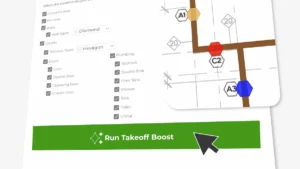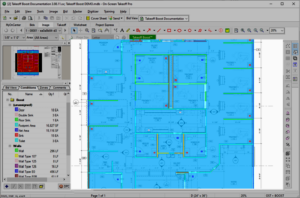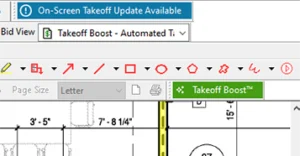Construction is a complex business with many moving parts. Getting the details of each project correct is critical for your productivity, ability to win bids, and overall business position among competitors. This is probably why almost every job posting for estimators and project managers cites “listening” as a critical skill for success.
Ask any estimator or project manager: their job requires frequent communication with a wide variety of people both inside and outside their company. That is why properly leveraging all the data and information gleaned from these interactions can make or break your efforts to do the takeoff, complete the estimate on time, and increase your company’s win rate.
So how good of a listener are you? If you’re like most of us (myself included), this is an area that might benefit from some improvement. With that in mind, here are a few do’s and don’ts to help you sharpen your listening skills both on and off the job.
Do – Be Present and Focus on the Person Speaking
A few years ago, I taught a class that included an activity around listening skills. The activity challenged people to critically observe their own listening and rate it at a level of 1, 2, or 3. Level 1 meant you were completely focused on the person speaking and highly tuned into what they were discussing. Level 2 suggested that you were mostly paying attention to what the person was saying, but part of your mind was also on other things. Level 3 indicated you were hearing the words of the other person, but not listening at all.
Think about your conversations with other people on the jobsite or at the office. Which level of listening do you reach? If you don’t get to Level 1 as much as you’d like, think about becoming more aware of which level you’re on as you go through a typical day. Take time to identify when you’re at a Level 2 or (gasp!) 3, but really need to be at a Level 1. And then shift your full attention to the person speaking. In addition, try to rid your mind of other concerns (hard, but doable if you try) during that time. As a result, your rapport with your construction colleagues will grow, as will your ability to more easily retain the details of your conversations.
Do – Set Devices Aside (If Possible)
When you’re meeting with another estimator, project manager, or the jobsite superintendent, put away your cell phone and/or your laptop (unless you’re looking at a takeoff or a bid in your estimating software program).
If not integral to the conversation, electronics can become a major distraction and can quickly turn your attention to something unrelated. In fact, if you take time to look at your email or glance at a social media app, before you know it, you’ll be at a Level 2 (or lower) and at risk of missing some important information.
Do – Recap Key Points
Effective communication between estimators and project managers in the office and the work crews and supervisor out on the jobsite is vital. Because dozens of details, such as measurements, pricing, punch list updates, and so on, are constantly being exchanged, you should consider recapping the key points of any conversation before it ends.
Doing so can show the other person that you were indeed listening closely to what they told you. In addition, it gives that person an opportunity to clarify any points that may still be somewhat murky.
Don’t – Interrupt
So, we’ve talked about a few things to start doing to become better listeners. Now, let’s switch gears and look at some things not to do. Chief among them is to resist the temptation to interrupt the other person. If that’s ever happened to you (and I’m betting it has at least once), you know how disrespectful it can feel. In fact, within a business context, it can even damage your relationship with your co-workers—depending on the frequency with which it happens. Not to mention the fact that such interruptions can throw the conversation off course and result in unnecessary time being spent on the issue at hand. So do your best to keep your listening at a Level 1 to show respect and to indicate that you value what the other person is communicating.
Don’t – Jump in with Solutions
Jumping in to offer potential solutions right away is another no-no. Perhaps you and another estimator or project manager are discussing some important issues related to a bid, such as the right amount of markup or whether to include some overtime labor into the budget.
During that conversation, it’s best to openly discuss all the options available rather than immediately declaring a solution. In fact, stepping back and allowing your colleague to present their idea first will demonstrate leadership and show that you value their professional expertise. As a result, they’ll be more willing to listen to your ideas so you can both arrive at the best decision for your company.
Don’t – Settle for the Status Quo
Finally, and perhaps most important, don’t fool yourself into believing you can’t become a better listener. I’ve heard it said that every skill you now count a strength was once a weakness. In other words, you first had to learn that skill and then practice it over time to get better. The same is true for listening.
If you commit to these do’s and don’ts and believe that improvement is possible, you’re well on your way to becoming a Level 1 listener. Achieving that milestone will positively impact your professional life in the construction industry (and maybe even your personal life as well), so give it a try!



